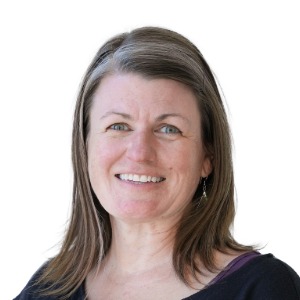The Wisconsin Coastal Beaches Workgroup (WCBW) is for professionals, researchers and funders involved in managing and improving Wisconsin’s 200+ Great Lakes beaches. The group was established in 2015 to facilitate:
- Information sharing
- Coordination and leveraging
- Stakeholder input
- Research guidance
- Funding connections
The WCBW Steering Committee works to achieve tangible, high-priority objectives as identified by workgroup members and stakeholders.
Join the workgroup
Anyone involved in issues related to the management, safety, or quality of coastal beaches in Wisconsin may become a WCBW member by subscribing to the Wisconsin Coastal Beaches listserv by sending an email to wicoastalbeaches+subscribe@g-groups.wisc.edu.
The WCBW Steering Committee is comprised of 10-12 beach-related professionals who actively participate in quarterly meetings and provide logistical support. For more information, contact Steering Committee Co-chairs Sara Hudson or Madeline Magee.
All WCBW members agree to adhere to two basic principles:
Information sharing: When appropriate, members will share information that is likely to be of consequence to the individual or collective efforts of other members and the WCBW Steering Committee.
Constructive participation: Members are encouraged to participate in the activities of the WCBW Steering Committee, such as periodic surveys, reviews, meetings and discussions. Participation should be respectful of other members, while helping to achieve identified objectives.
Webinars
Connections Between Wetlands and Beach Water Quality (March 12, 2021)
This webinar covers the connections between wetlands and water quality. Presenters were: Kyle Magyera, Local Government Outreach Specialist, Wisconsin Wetlands Association, and Dr. Joanna Grand, Senior Spatial Ecologist, National Audubon Society.
Managing Water Level Impacts for Wisconsin’s Beaches (Oct. 27, 2020)
A panel of experts discussed a range of water level issues and shared a local case study of designing a beach for resiliency. Presenters were: Deanna Apps, Physical Scientist, U.S. Army Corps of Engineers Detroit District; Adam Bechle, Coastal Engineering Outreach Specialist, Wisconsin Sea Grant; and Julie Kinzelman, Laboratory Division Director, City of Racine Public Health Department.
COVID-19 Impacts on Beach Management: State and Local Perspectives (Aug. 12, 2020)
State and local experts shared how COVID-19 has impacted beach management in Wisconsin. Presenters were: Ryan Wozniak, PhD, MPH, Wisconsin Department of Health Services; Sara Hudson, Director, City of Ashland Parks and Recreation; and Holly Glainyk, Waukesha County Parks.
Annual Meetings
WCBW will hold annual meetings at rotating locations around the state.
Agenda
Meeting Intro
Beach Monitoring Project
Potential Sources of Cyanobacteria to the Chequamegon Bay Region (Matt Hudson and Matt Cooper, Burke Center Associate Directors)
Wisconsin Beach Monitoring Program (Madeline Magee)
Economic Value of Reengineering WI Great Lakes Beaches (Matthew Winden Fiscal & Economic Research Center Institute for Water Business)
Characterizing & Forecasting Dangerous Currents on the South Shore of Lake Superior in Minnesota and Wisconsin (Chin Wu & Yuli Liu)
Blue-Green Algal Blooms: An Emerging Issue in Western Lake Superior (Brenda Moraska Lafrancois, National Park Service)
Annual Meeting Agenda
City of Racine Coastal Restoration Projects (Dr. Julie Kinzelman)
Economic Value of Beach Reengineering on Lake Michigan Beaches
Fund for Lake Michigan
Addressing Harmful Algal Blooms and Related Illnesses in Wisconsin
Building Coastal Resilience in Southeastern Wisconsin through Research, Education, and Collaboration (Todd Breiby, Wisconsin Coastal Management Program)
Wisconsin Coastal Beaches Working Group Spring 2019 Meeting (Racine Yacht Club)
No meeting this year
Agenda
Dangerous Currents (Todd Breiby, Wisconsin Coastal Management Program)
Lessons Learned (Greg Coulthurst)
Coastal Actions for Resilience and Economic Security (CARES) of Southeastern Wisconsin Bluff, Beach, and Infrastructure Assets (Todd Breiby, Wisconsin Coastal Management Program)
Agenda
Attendees
Presentations
Welcome (Todd Breiby, Wisconsin Coastal Management Program)
Water Quality (Kimberly Busse, University of Wisconsin Oshkosh)
Dangerous Currents and Risk Communication (Todd Breiby, Wisconsin Coastal Management Program)
Harmful Algal Blooms (Mark Werner, Department of Health Services)
Beach Resiliency and Erosion/Sediment Transport (Gene Clark, UW Sea Grant Institute)
Report: Great Lakes Beach Association 17th Annual Conference (Kimberly Busse, GLBA President)
Department of Natural Resources Report: Wisconsin Beaches (Donalea Dinsmore, Wisconsin Department of Natural Resources)
The Path to Mitigation (Greg Kleinheinz, University of Wisconsin Oshkosh)
Lessons Learned (AJ Koski, City of Racine Health Department)
Beach Dynamics (Pete Pittner, Miller Engineers and Scientists)
Nowcast and Training (Elisabeth Schlaudt, UW Sea Grant Institute)
How do you sell a restoration to your community? (Sara Hudson, City of Ashland Parks and Recreation Department)
Agenda
Meeting Welcome (7:02) – Lyndsey Page & Sandra McClellan
About the Workgroup (10:29) – Adam Mednick
Implementing “Nowcasts” (Predictive Models) (4:40) – Adam Mednick & Todd Miller
Improving Advisory Communications (14:01) – Donalea Dinsmore & Todd Breiby
Integrating Source ID into Beach Mgt.:
Part I (10:30) – Kim Busse
Part II (7:34) – Danielle Cloutier





